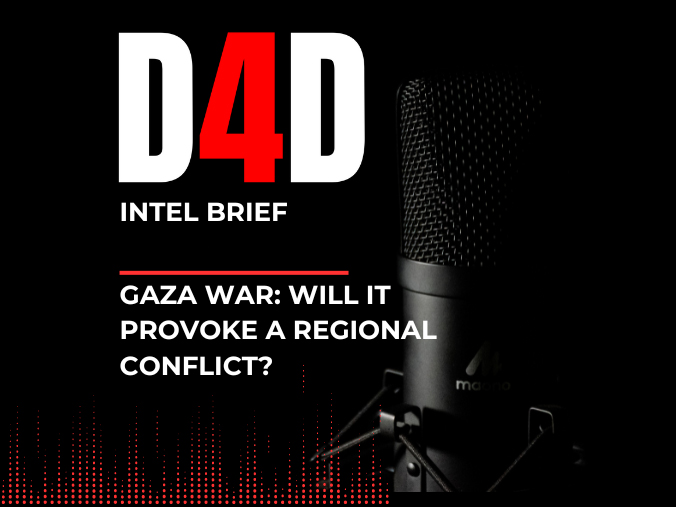

Author: JKM Strategies
Hamas carried out its initial horrific attack on Israeli civilians knowing its organization could not withstand a retaliatory attack by the Israeli Army. Under the threat of becoming irrelevant because Arab states are moving toward a separate peace deal with Israel, Hamas almost certainly hoped its actions would provoke a broader regional war. U.S. diplomacy — backed by a massive deployment of three U.S. carrier strike groups to the eastern Mediterranean Sea — helped deter Iran, the pro-Iranian Lebanese Hizballah and various pro-Iranian groups in Syria from becoming heavily involved.
- The containment of the conflict was a key early victory for the Biden administration in the conflict, and West Bank Palestinians, Palestinians in Jordan, and Hizballah have remained largely on the sidelines. Gulf Arab states have publicly hinted that the Gaza war will, at worst, delay their slow drift toward normalization with Israel.
- In retaliation for the death of three U.S. service members at a remote outpost in Jordan in late January, the Biden administration approved and has begun strikes against pro-Iranian targets in Iraq and Syria, according to Western press reports.
While Hizballah has maintained a steady stream of anti-Israeli rhetoric and traded token fire across the border in several incidents, only two incidents — with Iran and the pro-Iranian Houthis in nearby Yemen — so far have seriously threatened to broaden the conflict.
- Houthi militants for months have tried to escalate tensions by firing missiles at Israel, at coalition forces operating in the Red Sea, and against commercial ships. U.S. and allied forces have shot down many Houthi missiles and launched retaliatory strikes against the Houthis in an effort to deter more Houthi attacks. At stake is shipping through the Suez Canal; Houthi attacks in December forced over 100 ships to reroute to more expensive and longer routes.
- Two U.S. Navy seals died in mid- January attempting to board an unflagged ship that was suspected of carrying illicit Iranian-made weapons to Yemen.
- Israeli Finance Minister Bezalel Smotrich told the press in January that Houthi missile attacks against Israel were “wholly and completely” supported by Iran, and Israel would now regard missile targets in Iran as legitimate retaliatory targets. It did not matter if the Iranian-supplied missiles were fired by Iran or the Houthis; Israel would regard them as an Iranian attack.
- On the broader edge of the Gaza war, Iran last week sent a clear message that it would engage if pushed too far. Iran launched missile attacks against targets in Syria, Iranian separatist groups in Baluchistan, and various anti-Iranian targets in Pakistan. Tehran noted that the attacks were in retaliation for an Israeli airstrike killing members of its Revolutionary Guard Corps in Damascus and a bombing by an Iranian separatist group. The attacks provoked skirmishes along the normally tense Iran-Pakistan border.
Michael Bomberger has more than 30 years of national security and foreign policy experience. He has lived and worked in Eastern Europe and in the Middle East.
 Download PDF
Download PDF